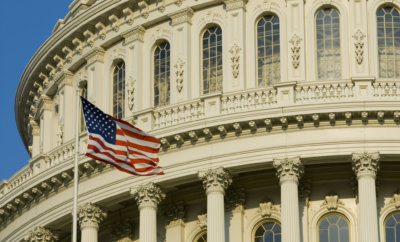Immigration
U.S. Attorney General Curbs Powers of Judges to Suspend Deportation Cases

Jeff Sessions
Photo: Wikimedia Commons
Administrative closure was used in thousands of immigration cases that were found to be low priority or involved those who had deep ties to the United States.
United States Attorney General Jeff Sessions on May 17 barred U.S. immigration judges from placing deportation cases on hold, Reuters reported.
The common practice of shelving cases was used in thousands of cases for immigrants, that were found to be low priority, or involved immigrants who were associated with the United States for a long time, or those who needed some time to get legal status.
Sessions made his decision based on the powers vested on him over immigration courts, which is a branch of his Justice Department. He said that the procedure, known as “administrative closure,” used by immigration judges since the 1980s, “lacks a valid legal foundation,” San Francisco Chronicle reported.
These closures were used routinely for people who did not have a criminal background and had lived in the country for many years, often with spouses or children who were U.S. citizens.
Under the tenure of former President Barack Obama, an effort was made to administratively close some cases in order to allow judges to concentrate on issues of higher priority, and to reduce the immigration court backlog, Reuters reported. Over 200,000 cases were closed during the last six years of Obama’s presidential tenure.
“Judges do not have the general authority to suspend indefinitely immigration proceedings by administrative closure,” Sessions said, adding that exceptions, however, could be made in some cases where an immigrant has some forms of legal status that was pending.
He also acknowledged the fact that rescheduling all cases that were closed “would likely overwhelm the immigration courts.” But they need not be returned to immediately, and instead the judges could phase them in, the order said.
Sessions has taken on many cases from the immigration courts earlier to deliver a verdict, including the case for which he gave a decision on May 17. A judge in this case had earlier granted administrative closure for an unaccompanied minor from Guatemala.
Lawyers and advocates for immigrants were reported as saying that Sessions’ decision could result in more number of deportations of immigrants. These immigrants would not get the chance to claim their right to stay in the United States.
“Sessions is making it more complicated for people who have legitimate reasons to become legal,” Jeffrey Chase, a New York immigration lawyer and former immigration judge, was quoted as saying by San Francisco Chronicle.
The ruling was intended “to reduce immigration judges to deportation machines,” Chuck Roth of the National Immigrant Justice Center said, Reuters reported.



